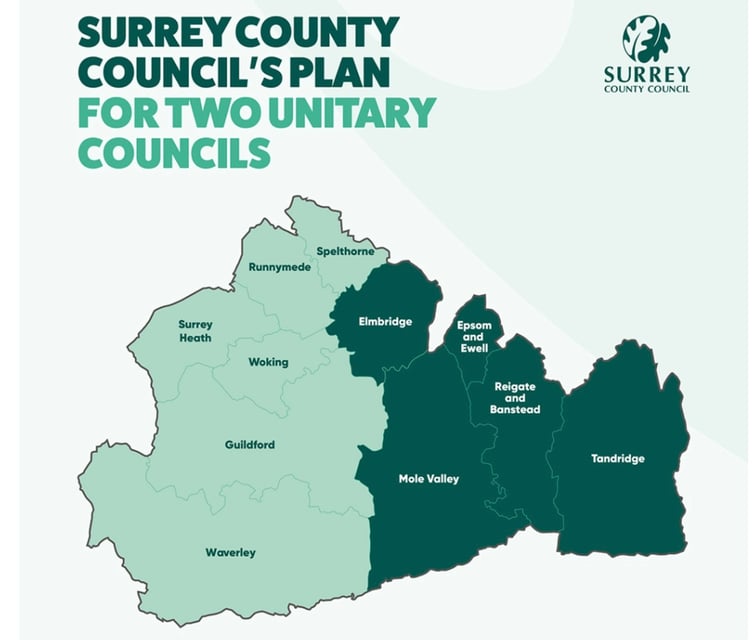The end of Surrey councils as we know them is set to be confirmed with the Government ready to announce massive changes to how services are delivered in the county – and Woking will get a a £500 million bail out to help make it happen.
Surrey County Council together with its 11 boroughs and districts will be dissolved and merged into two mega authorities, the Local Democracy Reporting Service understands.
There will be a directly elected mayor overseeing key strategic services such as fire and police. In a letter sent on Tuesday (October 28) by Steve Reed, Secretary of State for Housing, Communities and Local Government, to the leaders of Surrey’s council’s he said he has decided to move forward with two new unitary councils in Surrey – East Surrey Council and West Surrey Council – subject to Parliamentary approval.
The decision puts bankrupt Woking in with heavily indebted Runnymede and Spelthorne, together with the financially stressed Surrey Heath – which has led to concerns in the past about creating a troubled authority from the get go.
Mr Reed rejected the alternative three-council model despite both proposals meeting the criteria for devolution set out by the Government as the two unitary plans was a better fit financially.
One of the biggest questions the Government had to deal with was the incredible £5 billion of debt levels within the old councils, led by bankrupt Woking Borough Council.
Mr Reed wrote: “In particular, I believe (two unitaries) performs better against the second criterion: whether the councils are the right size to achieve efficiencies, improve capacity and withstand financial shocks. My view is that the two unitary proposal is more likely to be financially sustainable.
“As you will appreciate, this criterion is particularly relevant in the unique context of Surrey, where reorganisation is a critical intervention to improve the financial viability of the area’s councils.
“Putting Surrey’s local authorities on a more sustainable footing is vital to safeguarding the services its residents rely on, as well as investing in their futures.”
On finance Mr Reed also committed to repay £500m of Woking Borough Council’s debt in 2026-27. He said: “This is a significant and unprecedented commitment given historic capital practices at the Council.
“It reflects our acknowledgement that, even after the rationalisation of Woking’s historic assets, there is significant unsupported debt held by the Council that cannot be managed locally.”
Mr Reed said that having one council in charge in each area will see quicker decisions to grow our towns, connect people to opportunity, speed up house building and get vital infrastructure projects moving, while attracting new investment.
He accepted the three council plan, as backed by the majority of the boroughs and districts was a better geographical fit but moving to two councils made more sense financially.
Once approved, the government will pass a law abolishing the existing councils and establish new structures with with desired start date looking like being April 1 2027.
He is expected to announce his plans at the commons later today (Tuesday October 28).


.png?width=209&height=140&crop=209:145,smart&quality=75)
-Rory-OBrien-(Spelthorne)-Graham-Drage-(Guildford)-Richard.png?width=209&height=140&crop=209:145,smart&quality=75)

Comments
This article has no comments yet. Be the first to leave a comment.